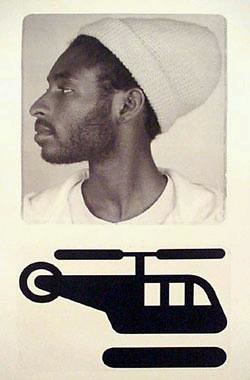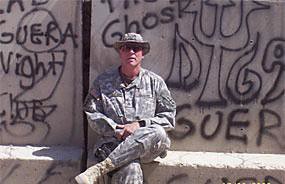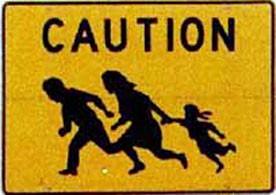Firstly, Lebanon is obviously in the news and so I've wondered to what extent the Habashis (more correctly known as Association of Islamic Charitable Projects) are still active and relevant to the situation over there.
Secondly, on a more personal note, about a year before I started practicing Islam, one of the individuals I had a lot of religious conversations with was this recently converted African-American in the AICP who worked in the local Afrocentric store. I really didn't have much of a notion of the various ideological currents among Muslims so at the time. I only had the sense that he was "orthodox". I also knew that somehow he was "Sufi" but I definitely had an overly romanticized notion of what that meant. Although I have to admit that he really struck me as a pretty deep and calm brother.
On the other hand, shortly after I became Muslim I ran into him and we talked a bit about Islam. It was nice to see him again but at the same time it was a bit disillusioning. Mainly because he was freely declaring takfir on all sorts of people from Seyd Qutb, Ibn Taymiyyah and Abdul-Wahab (who I'd hardly heard of at the time) to Warithdeen Muhammad (for allegedly saying that Allah has a nose) and Yusuf Ali (for writing in his translation of the Quran that "Allah is the light"). This brother made NO allowance for poetry or metaphor. Then my Hasbashi friend emphasized, to an extraordinary degree, the importance of wudu (He didn't say anything that was incorrect as far as I remember but I don't think he appreicated how he sounded to a new Muslim.) The other thing which was really weird about our conversation was that he also made a big deal about how the proper qibla is southeast. ("We are west of Mecca and north of Mecca so we should pray south and east"). Even at that point I understood something about geodesics and actually told him "but the world isn't flat" but I didn't want to be pushy so I let the matter drop. (And before we laugh too hard at his reasoning, I've read on multiple occasions that when Muslim immigrants first came to the US in large numbers, they also tended to pray southeast instead of northeast.)
To this day, I'm still not completely certain how much of his rigidity was a product of the typical convert's initial zeal (his temperament) and how much of it is representative of Habashis as a movement (his ideology). I have the sense that it was a little bit of both.
In retrospect, I think his sincere zeal for "orthodoxy" gave him an enviable sense of place and confidence. He would rattle off: "We are Ash'ari in aqida, Shafi in Fiqh and Rifai in Tariqa." Everything is in books. Every question has an answer. It is a stark contrast to my own path, tentatively and more slowly gaining an appreciation in turn for being Sunni, for the Hanafi madhab, and the Maturidi aqueeda. As far as tariqats go, at this point I've only had contact with Naqshbandis and Shadhilis but haven't really made a strong commitment to either.
The third reason why I think the Habashis are worth mentioning is because they are interesting in terms of su-shi issues. In spite of their apparent rigidness, they apparently take positions which could conceivably help bridge some of the disagreements between Sunnis and Shias. From the Hamzeh and Dekmejian article:
The complex structure of Shaykh Habashi's belief system blends elements of Sunni and Shi'i theology with Sufi spiritualism. The outcome of his doctrinal eclecticism is an ideology of Islamic moderation and toleration that emphasizes Islam's innate pluralism, along with opposition to political activism and the use of violence against the ruling order.
And the article goes on to explain how the Sunni Shaykh Habashi argues on behalf of the status of Ali, Fatima, Hassan and Hussayn and is critical of Mu'awiya as a transgressor.
Finally, something I wonder about, and would like to see more discussion on is what is going on with their nickname, "the Habashis" (the Ethiopians)? Are they really the dominant Islamic movement in Ethiopia? Or are there no other prominent movements coming out of that area which exist in the Muslim world? That's just weird when I stop and think about it.
If people have their own experiences with "the Habashis" I'd be happy to hear them.





